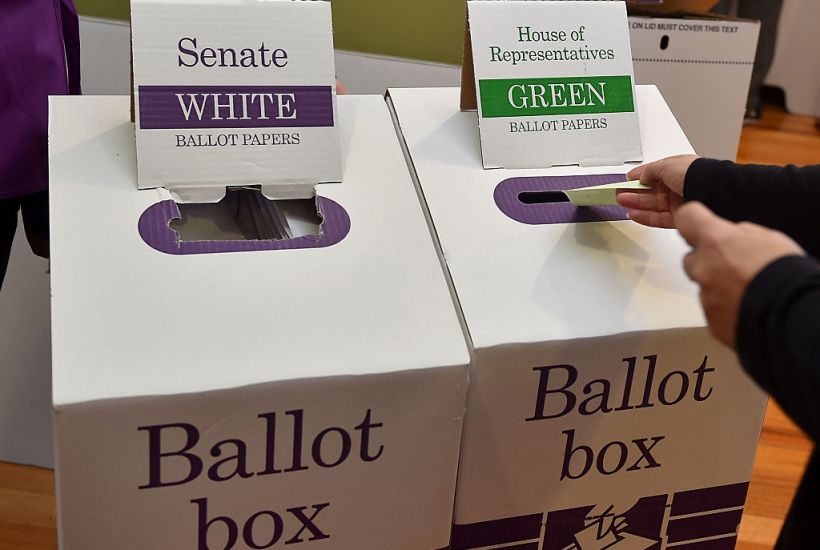Any audit of current MPs and Senators will be a waste of a lot of time. The thinking behind this call is that this is only important for those that are successful and that the losers don’t matter in the end.
Wrong. They do, and particularly in close elections. If we are to be confident that the parliament is legitimately elected we need to go much further. Declarations to parliament, however phrased, are a pointless option if they merely repeat what is on the form they all signed to nominate.
To be sure that we have a parliament that is complying with section 44 of the constitution what is needed is a forensic investigation – and not just of all the sitting members and senators. You would need to investigate everyone who ran at the most recent election, even those who were not successful. The disqualification under section 44 is not from being a member, but from nominating to run. Given the way that our voting system works, the presence of candidates on the ballot paper who should not have nominated can affect the ultimate outcome.
In a recent interview, the doyen of Australian psephologists, Anthony Green, regarding the likely Senate recount in Tasmania as a result of (the former) Senator Parry’s certain exclusion from the election makes this problem clear for the Senate, particularly where there are many below the line votes. Parry’s exclusion from the count is likely to not only elect the next Liberal on the ticket, Richard Colbeck, to replace him but should also result in Nick McKim, the last Green elected, being replaced with a One Nation candidate, Kate McCulloch.
This is a result of the way the Senate voting system works once there are BTL votes. It may be argued before the court that the only person affected should be Parry, but you can expect counsel for One Nation to be present in the court and arguing that the process should follow every precedent and that a full recount be conducted.
At the very least, Nick McKim might have cause to feel hard done by. He would also legally have to pay back all his wages since July 2016 – but this is normally waived.
The problem is a simple one – candidates cannot be thought of as just being a Liberal, National, Labor, Green or any other party representative – they are individuals, and we are actually voting for them rather than their party. In the Tasmanian Senate vote last elections this was made very clear by the high below the line vote, occasioned by many voters being dissatisfied by both the major parties’ preselection choices. In close elections, the exclusion of a particular person because he or she has a foreign citizenship could make all the difference.
The bigger issue is that for the House of Representatives vote, every single vote is like a Senate below the line vote. All of them.
It’s not hard to imagine a situation where a popular losing candidate could affect the flow of preferences – say by having an effective how-to-vote card, by raising issues that hurt one or other major party candidates or by any one of a number of other effects. Look, for example, at the seats of Herbert or Forde (both in Queensland) at the most recent election. What if the One Nation or Greens candidate in either of those seats had been excluded for a breach of section 44, who’s to say where their votes would have gone? People who wanted to vote for them may instead have spoiled their ballot paper or donkey voted. Both of these seats were won with a small majority, with a high Greens and One Nation vote – and a lot of other minor parties in there too. The exclusion of any one of the losing candidates in either of these seats could have changed the result.
Just investigating the winner provides no assurance that section 44 of the constitution has been satisfied. The closer the result in a seat the less certain you can be. You also can’t be sure ahead of time which seats are going to be close enough to make a difference, so if there is to be an investigation for this or future elections it would need to cover every single person who nominates in that election – and if they are found to be excluded then you must try to decide whether that could have affected the election. If you want to prevent a lot of by-elections after every election then you would need to do the investigation prior to the election.
This would mean future election campaigns would have to cover months if this were to be done by the Australian Electoral Commission or candidates would have to be vetted in some way prior to their nomination being accepted. Practically, it may be better to let sleeping dogs lie. We can be very certain that most parties will be checking much more carefully in future, though.
Andrew Reynolds is a CPA that occasionally does forensic investigations and has a strong interest in elections and the constitution.
Got something to add? Join the discussion and comment below.
Got something to add? Join the discussion and comment below.
Get 10 issues for just $10
Subscribe to The Spectator Australia today for the next 10 magazine issues, plus full online access, for just $10.


























Comments
Don't miss out
Join the conversation with other Spectator Australia readers. Subscribe to leave a comment.
SUBSCRIBEAlready a subscriber? Log in